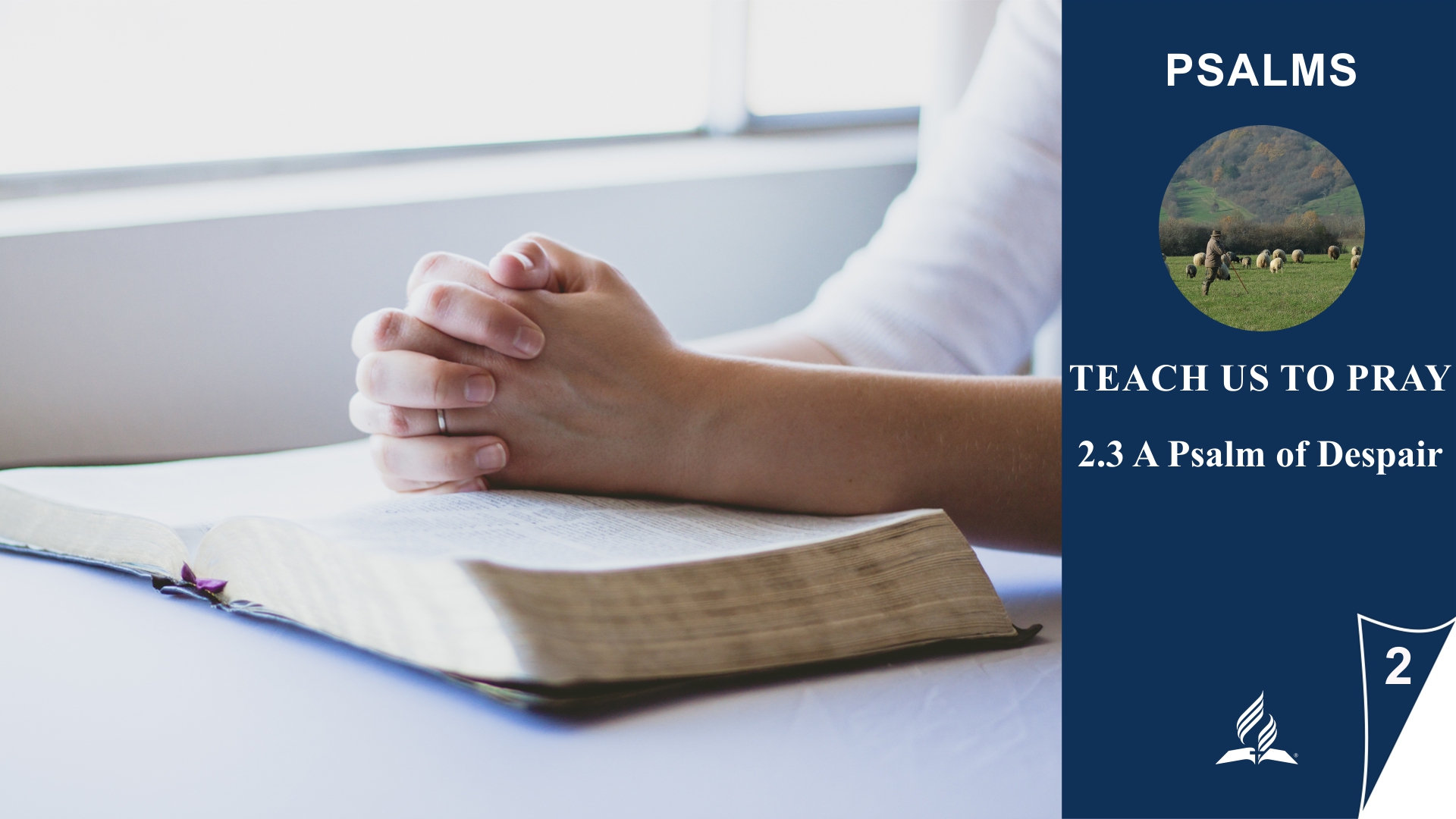

2.3 A Psalm of Despair
Read Psalm 22. What can we learn from this psalm about trusting God in the midst of great suffering?
Psalm 22 is indeed a powerful example of how the psalms can help us cope with great suffering and life’s challenges. Here are some key aspects we can learn about trusting God in the midst of great suffering from this psalm:
-
Sincere Expression of Pain and Abandonment:
-
The psalm begins with the lamenting words quoted both by David and Jesus on the cross: “My God, my God, why have you forsaken me?” These words show that it’s okay to speak sincerely to God about pain and feelings of abandonment.
-
-
Awareness of God’s Past Faithfulness:
-
Despite the immediate experience of suffering, the psalmist remembers God’s faithfulness in the past. This indicates that trust in God is not solely based on present circumstances but also on the memory of God’s actions throughout history.
-
-
Anticipation of Future Redemption and Praise:
-
The psalm goes beyond lament and emphasizes an anticipation of future redemption and praise. Even amid suffering, the psalmist declares faith in God’s sovereignty and expresses the resolve to praise God’s name.
-
-
Trust Despite Apparent Silence of God:
-
The psalm provides insight into the human experience that there are times when God seems silent and does not immediately respond. Nevertheless, the psalmist still expresses trust in God and remains firmly anchored in faith.
-
-
Lesson in Trust and Overcoming:
-
Praying and meditating on such psalms teach us that trust in God is not contingent on whether we are currently in a time of joy or sorrow. It is an active and conscious act of faith that enables us to build on God even in challenging times.
-
The Psalms provide a space for honest and deep expressions of emotions, but they also lead us to focus on God’s greatness, faithfulness, and future redemption. Praying the Psalms leads to spiritual transformation, allowing us to remain in faith and hope in God’s guidance and comfort despite life’s challenges.
How can we learn to look beyond our immediate difficulties and trust in God’s goodness, whatever we may be experiencing at the moment?
Learning to look beyond immediate difficulties and trust in God’s goodness requires a conscious effort, spiritual practice, and a perspective aligned with God’s character and promises. Here are some steps that can help:
-
Biblical Meditation:
-
Regularly immerse yourself in the Bible, especially in Psalms and other texts that speak of God’s goodness and faithfulness. Meditate on the truths of Scripture and remember God’s actions in history and in the lives of other believers.
-
-
Practicing Gratitude:
-
Consciously focus on things for which you can be grateful, even in the midst of difficulties. Gratitude helps develop a perspective of appreciation and opens your eyes to God’s blessings.
-
-
Prayer and Communication with God:
-
In your prayers, share not only your immediate concerns but also recall God’s character and promises. Pray for the grace to look beyond present circumstances and recognize God’s work in your life.
-
-
Community with Believers:
-
Share your experiences and challenges with other believers. Exchanging stories of faith and overcoming can help develop a collective perspective and mutual encouragement.
-
-
Seeking Spiritual Mentors:
-
Seek advice and guidance from spiritual mentors or older believers who have experienced trusting in God’s goodness amid difficulties. Their life wisdom can be inspiring and instructive.
-
-
Perspective Shift:
-
Try to view your situation from a broader perspective. Remember that God’s plans often extend beyond immediate circumstances. Consider how your current challenges fit into the larger context of God’s plan for your life.
-
-
Self-reflection and Growth:
-
Use challenging times as an opportunity for self-reflection and spiritual growth. Consider how God might be shaping you through these experiences and what lessons you can learn.
-
-
Storing God’s Word in Your Heart:
-
Memorize Bible verses that speak of God’s goodness, love, and faithfulness. Having these words in your heart can serve as a source of strength during difficult times.
-
-
Eternal Perspective:
-
Remind yourself that this world is not your eternal home. An eternal perspective helps you see temporal difficulties in the light of eternal glory.
-
Learning to look beyond immediate difficulties and trust in God’s goodness is an ongoing process. It requires a conscious effort to align your perspective with God’s perspective, seeking His guidance and comfort continually.
Visited 3 times, 1 visit(s) today






